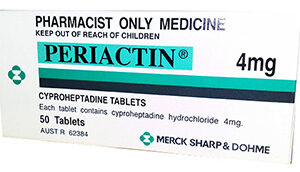Aspirin Overview
Aspirin, chemically known as acetylsalicylic acid, is one of the oldest and most widely used medications globally. Its roots trace back to ancient civilizations, utilizing salicylate-rich plants for pain relief. Today, it serves manifold purposes in medicine, from alleviating pain to reducing the risk of certain cardiovascular events. As a nonsteroidal anti-inflammatory drug (NSAID), it operates by hampering the production of chemicals in the body that incite inflammation, pain, and fever.
Aspirin Applications
The medication’s utility spans multiple domains. Principally, it addresses mild to moderate pain, such as headaches, muscle aches, and toothaches. Furthermore, it is effective in reducing fever and is often deployed in the management of inflammatory conditions, like rheumatoid arthritis. Notably, in low doses, Aspirin is prescribed to prevent blood clots, thereby decreasing the likelihood of strokes and heart attacks in individuals with elevated risk profiles.
Dosage Guidance
The appropriate Aspirin dosage is contingent upon the intention behind its use. For pain and fever relief, adults typically consume 325-650 mg every 4 to 6 hours; however, for cardiovascular prophylaxis, a lower dose of 75-100 mg daily suffices. Administration involves oral intake, with the medication best swallowed whole with water, and accompanied by food to minimize digestive side effects. It is imperative to adhere to medical advice on dosage to ensure effectiveness and minimize risks. Never exceed the recommended dose or duration without consulting a healthcare provider.
Precautions for Use
Vigilance is advised when considering Aspirin therapy. People with asthma, bleeding disorders, liver or kidney ailments, or stomach disorders should use caution. Concurrently, Aspirin may pose risks during pregnancy and lactation; healthcare consultation is crucial before beginning treatment. Additionally, since Aspirin can increase bleeding tendencies, it’s important to notify doctors or dentists prior to surgical procedures that you are taking Aspirin.
Side Effects Scope
While Aspirin is well-tolerated by many, some individuals may encounter side effects. Common ones include gastrointestinal discomfort, nausea, and increased bleeding risk. More grave, albeit less common, side effects can manifest as severe allergic reactions, ringing in the ears, or signs of gastrointestinal bleeding such as dark stools or vomiting blood. Immediate medical attention is warranted when experiencing any severe or persistent adverse effects.
Drug Interactions
Aspirin can interact unfavorably with various other medications, including blood thinners, NSAIDs, steroids, and certain antidepressants, augmenting the risk of bleeding. Additionally, it can affect the efficacy of medications like antihypertensives or diabetes drugs. It is always advisable to provide a complete list of all medications and supplements to healthcare professionals to preclude harmful interactions.
Contraindications Discourse
Not everyone is a suitable candidate for Aspirin therapy. Individuals with known allergies to NSAIDs, those with a history of stomach ulcers or bleeding, and children with viral infections, particularly chickenpox or influenza, should not take Aspirin due to the risk of Reye’s syndrome—a potentially fatal condition affecting the liver and brain. Moreover, patients slated for coronary artery bypass graft surgery should avoid Aspirin leading up to the procedure.
Overdose Insights
Aspirin overdose is a medical emergency characterized by symptoms such as extreme drowsiness, confusion, severe headache, ringing in the ears, blurred vision, rapid breathing, and uncontrollable shaking. Treatment for an overdose involves immediate medical intervention, potentially with activated charcoal to prevent further absorption, and supportive care in a hospital setting to manage symptoms and protect vital organ functions.
Common Queries
Can Aspirin prevent heart problems? Yes, when taken in low dosages, Aspirin can avert blood clots from forming, thus cutting down the risk of certain heart complications. However, this should be done under physician guidance.
What should I avoid while taking Aspirin? Steer clear of alcohol as it can exacerbate stomach bleeding. Additionally, consult with a healthcare provider before using other OTC medications that may contain Aspirin or similar agents.
Can I take Aspirin during pregnancy? Aspirin may be harmful during pregnancy, particularly in the third trimester. It’s essential to review all potential risks with your healthcare provider before taking Aspirin while expecting.
What’s the protocol if I miss a dose? If prescribed for routine use and a dose is missed, take it as soon as recalled, but if the time is close to the subsequent dose, bypass the missed one. Do not double up on doses to make up for the missed one.
Is Aspirin suitable for children? Aspirin should not be administered to children or teenagers with fever-inducing conditions due to the risk of Reye’s syndrome unless specifically prescribed by a physician.
How should Aspirin be stored? Keep Aspirin in a tightly sealed container at room temperature, away from moisture and heat. Ensure medications are inaccessible to children and pets.






Reviews
There are no reviews yet.